The Books That Influenced Me on Strategy
There might not be a “one-size-fits-all” approach to building a successful company strategy. But seeking advice and guidance from experts within the field can without a doubt be beneficial and help you think in new ways. There is a lot of great literature on strategy and success, but the following five books have influenced the way I think and go about strategy more than any others:
1. The End of Competitive Advantage: How to Keep Your Strategy Moving as Fast as Your Business by Rita Gunther McGrath, 2013
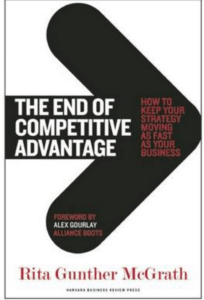 Rita is one of my favorite authors – and one of the world’s leading visionaries in business strategy. Her principle of transient strategy is one I firmly believe in and use in my own business here at StrategyBlocks. The book shines light on the need to be strategically agile and to able to rapidly adapt to changing market circumstances in order to take advantage of opportunities as they appear. It drives home that in today’s business landscape companies can’t afford to spend months developing a single long-term strategy. They need to be agile, dynamic and able to form transient strategies as they appear.
Rita is one of my favorite authors – and one of the world’s leading visionaries in business strategy. Her principle of transient strategy is one I firmly believe in and use in my own business here at StrategyBlocks. The book shines light on the need to be strategically agile and to able to rapidly adapt to changing market circumstances in order to take advantage of opportunities as they appear. It drives home that in today’s business landscape companies can’t afford to spend months developing a single long-term strategy. They need to be agile, dynamic and able to form transient strategies as they appear.
2. Strategy Builder: How to Create and Communicate More Effective Strategies by Stephen Cummings and Duncan Angwin, 2015
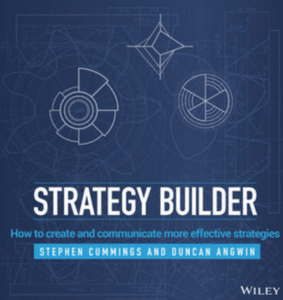
This book is a strong guide for how to use a number of methodologies and frameworks in order to create dynamic strategic ideas. A visual guide with illustrations and images, Strategy Builder presents 25 of the world’s most useful and practical strategic methodologies in a creative and easily understandable way. “A playbook for strategy,” this book is full of compelling examples from growth outlier firms such as Fujifilm, Cognizant Technology Solutions, Infosys, Yahoo!. In fact, this book inspired the development of our StrategyBlocks Builder more than any other piece of literature.
3. Ten Rules for Strategic Innovator: From Idea to Execution by Vijay Govindarajan and Chris Trimble, 2005
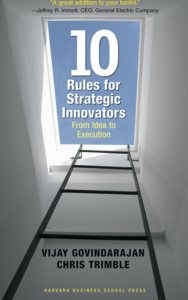
This is a practical guide outlining the business rules to strategic innovation. One thing that stood out to me was the advice on formation of strategy and what to consider when implementing it — essentially, a powerful strategic idea is not enough to ensure success. The authors analyzed institutional structures which allow, nurture and support innovation. It made me realize that no matter the company, you only get one opportunity to execute your strategy, and you may only get one shot to manage a major innovative project. A valuable lesson is that parent companies will try to kill off emerging new innovative ideas if they are not perfectly aligned with the vision. This book drives home the point that it is crucial to put your strategy and innovation out of incubation, and away from its umbrella so it can develop on its own without the constraints imposed by its parent company.
4. The Boston Consulting Group on Strategy: Classic Concepts and New Perspectives by Carl W. Stern and Michael S. Deimler, 2006
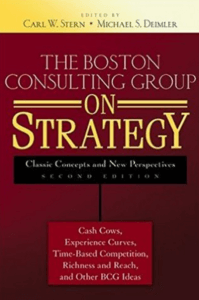
This book does exactly what it says on the cover, it provides classic concepts and new perspectives. Stern and Deimer offer an eclectic mix of case studies, practical lessons and short articles from different areas of strategy, and from every industry. It presents a solid picture of where strategy originated and its importance. It’s certainly a read that should be on every strategist’s bookshelf.
5. Hoshin Kanri: The Strategic Approach to Continuous Improvement by David Hutchins, 2008
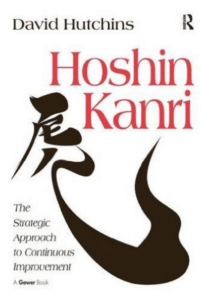
This book has inspired me tremendously in terms of strategic planning and execution. Originating in Japanese quality management, Hoshin Kanri is a step-by-step strategic planning approach to change towards continuous improvement. It’s important because it speaks to the collective strength of an organization and ensures people are accountable for continuous improvement. Hoshin planning is, in many respects, the driving methodology of StrategyBlocks and we use it as a top-down approach for decomposing strategy.
Reading plays a huge role in leading people down the pathway to success. The above snapshot of books is just a few that have helped guide me throughout my career, as well as hone initiatives at StrategyBlocks. Reading literature and taking learnings from leading visionaries and professionals will only encourage you to look at strategy in ways that you wouldn’t have imagined. Afterall, it was one of Walt Disney’s secrets of success. He knew “there is more treasure in books than in all the pirate’s loot on Treasure Island.”



Leave A Comment